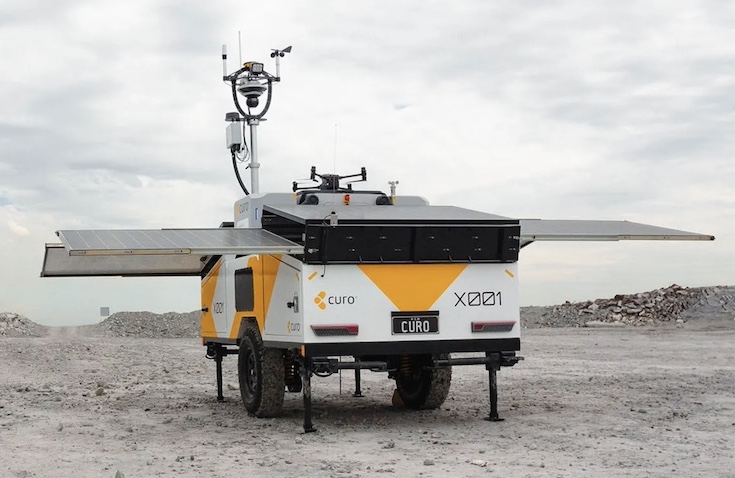
Getting beyond the visual line of sight (BVLOS) approval for your drone system isn’t easy – it can take years. Just ask the folks at Sphere Drones, who just received a preliminary BVLOS approval from Australian civil aviation authorities to allow for the first sustained field testing of their unique solar-powered drone-in-a-box system known as “HubX.”
The company’s BVLOS approval sets the stage for the development and deployment of HubX for an extended duration. Sphere Drones can establish a permanent demonstration site and conduct comprehensive testing, showcasing the company’s technology and operational expertise, and eventually deploying for autonomous aerial inspections.
“It is a big step to obtain your first BVLOS approval which includes extensive processes and procedures to prove safety and sufficiency in your technology solutions and redundancies,” Elliot Cummins, the company’s chief remote pilot says.
With a BVLOS waiver, Sphere Drones can conduct operations with HubX without the need for spotters or trained on-site observers. The drone system is a self-sustaining, rugged mobile drone platform with its own internet connection and solar battery system. It can function in any terrain under diverse weather conditions, even in extremely remote areas.
Somewhat paradoxically, the new BVLOS waiver will not allow Sphere Drones to conduct HubX operations from a remotely piloted command center, which would allow for even greater mobility and flexibility. However, the company is in the process of securing a separate BVLOS waiver to authorize operations from its newly created command center.
Sphere Drones CEO Paris Cockinos says: “We’re proud of the dedication and effort the team has invested in regulatory and licensing work over the past few years, as well as their success in developing HubX to a stage where it met the requirements to gain approval. It’s truly a testament to our team’s focus and hard work.”
HubX is Sphere Drones’ first major foray into drone technology development. The company is already well-known for its drone service support and sales experience, with companies like DJI and Boston Dynamics among its top clients. The company has also partnered with Switzerland-based Flyability, producer of the state-of-the-art Elios 3 drone, which is widely used in indoor infrastructure inspections, including nuclear waste storage facilities.
In all likelihood, the HubX, once fully developed, will join Flyability’s arsenal for inspections in Australia, which is a global leader in mining operations. Sphere Drones’ initial demonstration site is in New South Wales, a state rich in gold, copper and cobalt and one of the country’s three main mining sites. In addition, there are major public and private infrastructure sites throughout the state in need of aerial inspections that can detect possible service breakdowns while reducing operational costs and improving energy efficiency.
“Australia has some of the largest mining, oil and gas and maritime operations in the world and with the Flyability Elios, we have a genuine, cost-effective solution for applications that have been historically time consuming, expensive and ‘at risk’ for personnel,” Cockinos noted last year.
HubX received its first trial four months ago at the Yancoal Corporation’s remote coal mine at Mount Thorley. The trial demonstrated that HubX can improve the frequency and quality of aerial surveillance and reduce the exposure of field inspectors to potentially dangerous environments. With additional BVLOS approvals, Sphere Drones hopes to expand its field testing to other remote sites with additional companies based in New South Wales.
|